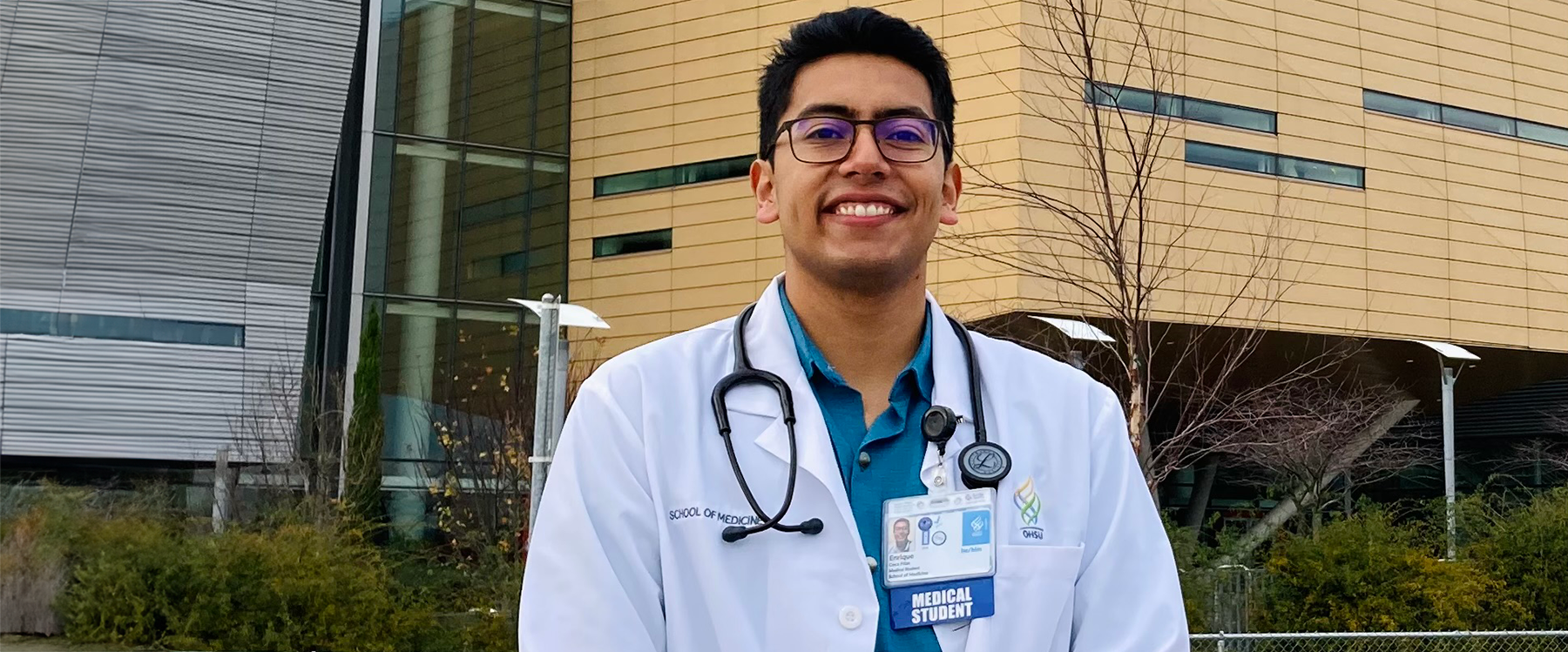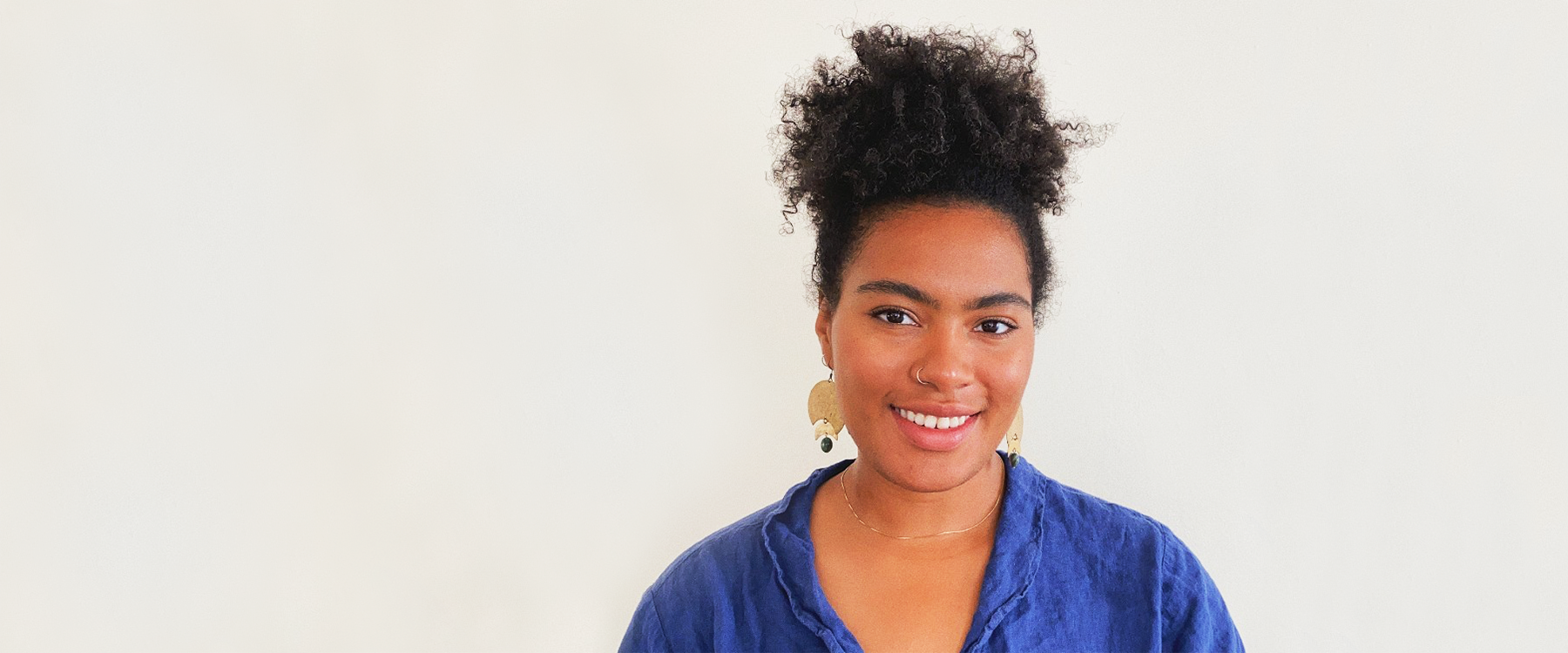Enrique Coca remembers the moment he wanted to pursue medicine.
He was a biomedical engineering student at the University of Utah. Coca always had a love for math and science. His passion, however, was for people. Volunteering as a medical interpreter at a free clinic in Salt Lake City, Coca was drawn to the connection he witnessed between clinicians and their patients. He made the decision to pursue medical school, and today, he is a medical student in the OHSU School of Medicine.
“As medical students and physicians, we have a huge responsibility to advocate for the people we care for. There are a lot of systemic barriers in place preventing people from fully achieving their optimal health.”
Enrique Coca
“There was one encounter between a Spanish-speaking mom and her English-speaking provider that made me switch gears and convinced me to go into medicine,” said Coca, who is slated to graduate from the OHSU School of Medicine in 2025. “I really saw they had a true friendship, that they cared about each other. They had that human connection, even though they didn’t speak the same language. That was really powerful to see.”
Coca’s time as a medical interpreter also instilled a passion serving non-English-speaking immigrant communities. A first-generation college student who was born in Bolivia and moved to the United States at 4 years old, Coca has seen how language and cultural barriers affect health care discrepancies.
“A big passion of mine since then has been helping the Latinx community,” Coca said. “Being an immigrant myself, I know how much of a barrier language and culture can be. Being someone from a different cultural background, it’s powerful to be able to understand where people come from and to help gain trust in this system. That’s ultimately what brought me into medicine.”
Coca graduated from the University of Utah in 2020. He wanted to attend a medical school known for its academics and research, an institution that valued student diversity and understood how it shaped the future of health care. If that medical school happened to be in a picturesque location with an abundance of activities for people who loved the outdoors, that was a bonus.
So when OHSU showed up on Coca’s radar, he knew he’d found a perfect fit.
“OHSU’s emphasis on clinical skills, interpersonal skills, on primary care training, on research opportunities, that’s all a good foundation to be exposed to,” he said. “There’s a sense of community here, and I really like the collaborative aspect it has. It’s way more collaborative than I’ve ever had before.”
About the importance of student diversity, Coca said, “Having an immigrant background, when I see a Spanish-speaking patient, it reminds me of someone I grew up with; it reminds me of my dad or someone from my church group or a friend. As medical students and physicians, we have a huge responsibility to advocate for the people we care for. There are a lot of systemic barriers in place preventing people from fully achieving their optimal health.
After Coca arrived on campus, it didn’t take long for him to get plugged into community volunteer and student leadership opportunities. He is a community relations co-lead with the Latino Medical School Association chapter at OHSU and works to build relationships and clinical opportunities with local advocacy groups and Latinx immigrant communities.
“It was a huge passion of mine to reach out to the Latinx community in Oregon,” he said. “I really enjoy my own cultural identity, and I love being able to serve that community. It’s very special to me.”
Coming from Utah, Coca acknowledges he probably would not have been able to afford out-of-state tuition at OHSU had it not been for the OHSU President’s Fund and the Future of Medicine Leadership Scholarship. That is why he’s working with OHSU administration to increase funds to meet the need for a larger population of diverse students.
“We’re seeing more and more students come from disadvantaged backgrounds. They’re high-quality applicants, and more and more of them are qualifying for these types of funds,” Coca said. “I think this is a great school, and one of the strengths of this school is the diversity of students. So if we want to continue that, these funds will be essential.”




